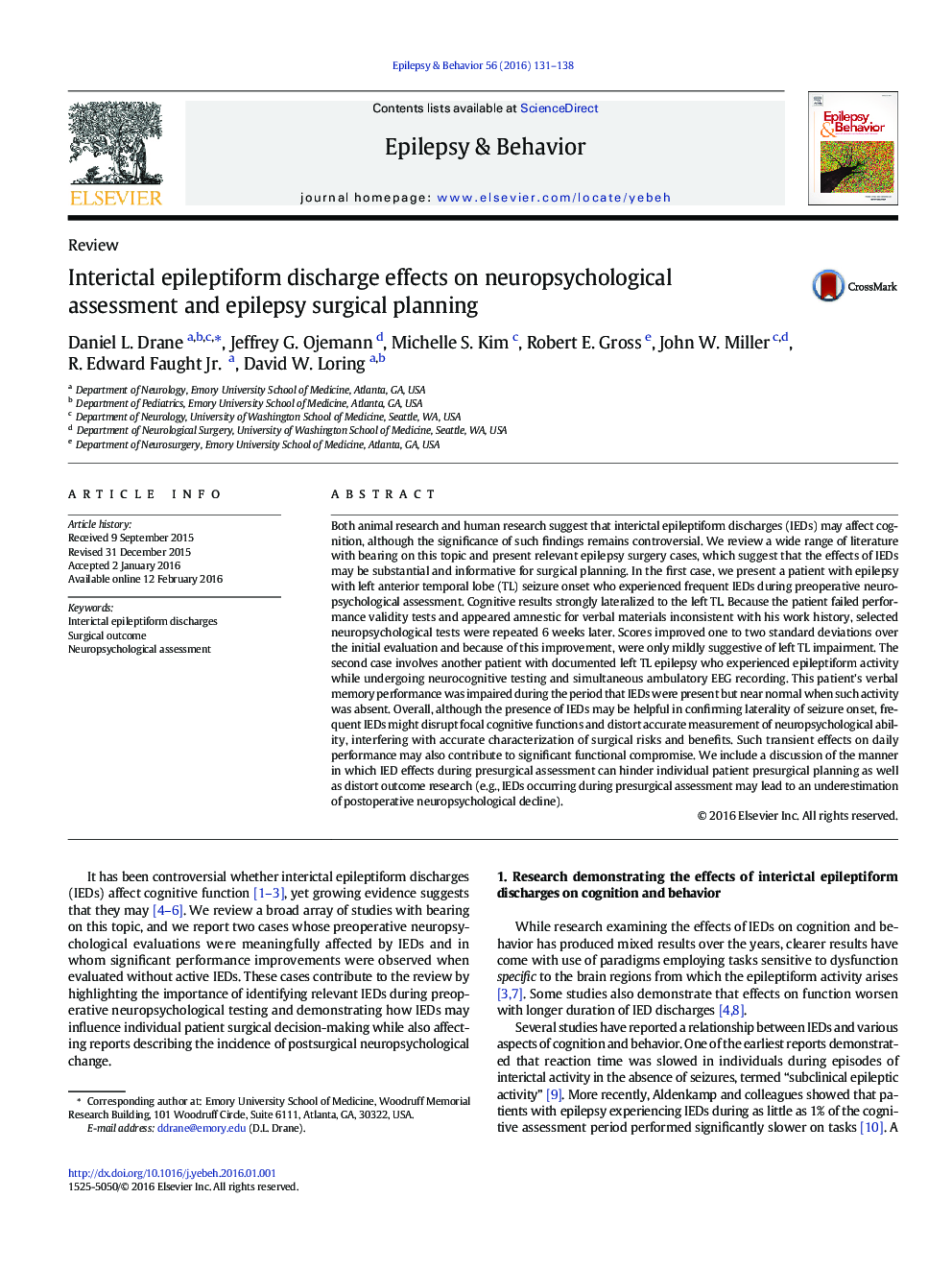| کد مقاله | کد نشریه | سال انتشار | مقاله انگلیسی | نسخه تمام متن |
|---|---|---|---|---|
| 6010612 | 1579834 | 2016 | 8 صفحه PDF | دانلود رایگان |
- We review extensive animal and human research suggesting interictal epileptiform discharges (IEDs) may affect cognition.
- Case series data demonstrate cognitive dysfunction is associated with IEDs using simultaneous EEG during testing.
- The occurrence of IEDs can lead to spurious conclusions about neurocognitive data.
- Not appreciating IED effects can misinform epilepsy surgical planning and risk prediction, and obscure outcome research.
- Understanding IED effects on cognition can improve seizure onset classification and illuminate brain-behavior relationships.
Both animal research and human research suggest that interictal epileptiform discharges (IEDs) may affect cognition, although the significance of such findings remains controversial. We review a wide range of literature with bearing on this topic and present relevant epilepsy surgery cases, which suggest that the effects of IEDs may be substantial and informative for surgical planning. In the first case, we present a patient with epilepsy with left anterior temporal lobe (TL) seizure onset who experienced frequent IEDs during preoperative neuropsychological assessment. Cognitive results strongly lateralized to the left TL. Because the patient failed performance validity tests and appeared amnestic for verbal materials inconsistent with his work history, selected neuropsychological tests were repeated 6Â weeks later. Scores improved one to two standard deviations over the initial evaluation and because of this improvement, were only mildly suggestive of left TL impairment. The second case involves another patient with documented left TL epilepsy who experienced epileptiform activity while undergoing neurocognitive testing and simultaneous ambulatory EEG recording. This patient's verbal memory performance was impaired during the period that IEDs were present but near normal when such activity was absent. Overall, although the presence of IEDs may be helpful in confirming laterality of seizure onset, frequent IEDs might disrupt focal cognitive functions and distort accurate measurement of neuropsychological ability, interfering with accurate characterization of surgical risks and benefits. Such transient effects on daily performance may also contribute to significant functional compromise. We include a discussion of the manner in which IED effects during presurgical assessment can hinder individual patient presurgical planning as well as distort outcome research (e.g., IEDs occurring during presurgical assessment may lead to an underestimation of postoperative neuropsychological decline).
Journal: Epilepsy & Behavior - Volume 56, March 2016, Pages 131-138
